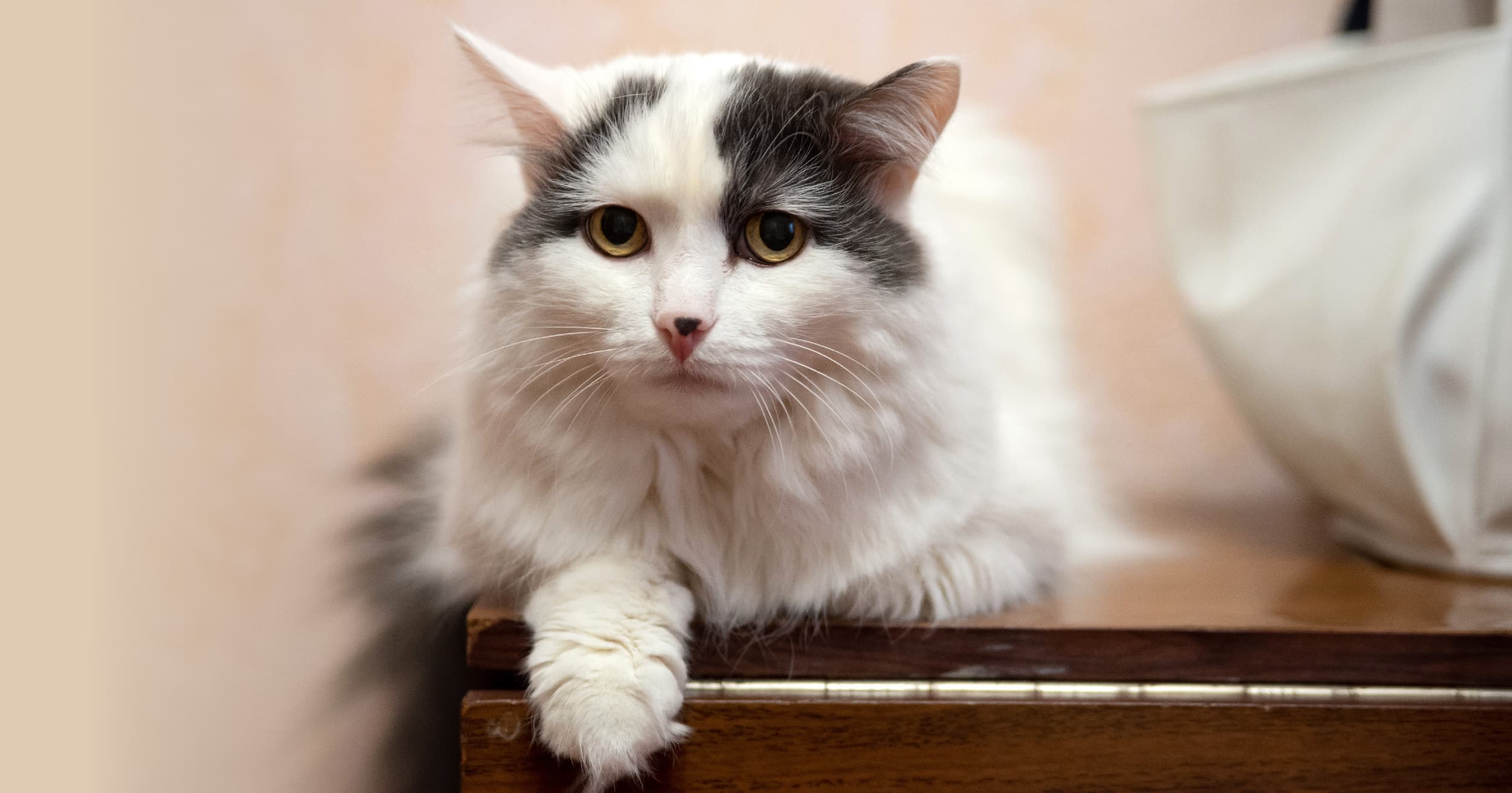
As your cat enters their double-digit years, you may notice some subtle changes happening. They might like to sleep a little more, play a little less, talk a little more and not be so forgiving when there are changes to their routine. You may also notice that your senior cat feels a little lighter or looks a little skinnier. Weight loss is a common age-related change for older cats, but why is that? Here are some of the possible reasons behind your senior kitty’s slimmer appearance.
Food Doesn’t Taste Good or Digest Well Anymore
If your kitty is turning their nose up at the food bowl, it could be that a decreased sense of smell, taste and sight due to aging is making what use to be your cat’s favorite food less appealing and ruining their appetite. Along with reduced senses, as cats get older their ability to digest and absorb nutrients decreases, particularly protein and fat. Because their nutritional needs aren’t met, their body draws from muscle and fat tissue, causing weight and muscle loss. Since older cats tend to have trouble keeping weight on, they may need more calories to support an ideal body condition (e.g., more food or food with a higher calorie content). Veterinarians may recommend a more energy-dense diet that is easily digested to help stop weight loss.
Medical Causes of Weight Loss in Senior Cats
An underlying health condition (or multiple conditions) can also be the cause of weight loss in older cats. The symptoms of diseases that commonly affect senior cats can be subtle, so you may not notice them right away — which is why regular checkups and screening for these diseases is important. The most common symptoms include weight loss, a change in appetite, and drinking and urinating more than usual. Listed below are some of the diseases that commonly affect senior cats.
Kidney Disease
Chronic kidney disease (CKD) is one of the most common health issues for senior cats. As part of normal aging, some of the kidney’s nephrons (the filtration units) lose their function. In cats with CKD, a large number of nephrons don’t work properly. The first signs of CKD are typically weight loss, increased urination and increased thirst. Routine screening can help detect CKD in the early stages.
Hyperthyroidism
Hyperthyroidism is caused by an overactive thyroid producing excessive amounts of thyroid hormone. It’s considered the most common hormone-related disease of middle-aged and older cats. Weight loss is seen in almost all cats with hyperthyroidism due to an abnormally high metabolism. Other common signs include increased appetite, thirst and urination. Most cats respond well to treatment and can live normal lives when the disease is properly managed.
Diabetes
Diabetes can affect senior cats, particularly neutered males. Other factors that can increase your cat’s risk of diabetes include inactivity, genetics, chronic pancreatitis and hyperthyroidism. Cats with diabetes will often lose weight even though they eat more. Diabetes can’t be cured, but it can be managed with diet changes and medication.
Arthritis
The pain and inflammation of arthritis can make it difficult for cats to move around, including making trips to the food bowl. It’s a good idea to place their food and water bowls close to where they like to hang out and raise the bowls so that they don’t have to stretch their necks as low to reach the food and water.
Periodontal Disease
If your cat’s teeth or gums are hurting, they’re probably not going to want to eat. Periodontal (gum) disease, the most common oral problem in cats, can also make it hard for your cat to chew kibble. You may need to switch to softer, canned food to encourage them to eat. You can help keep your cat’s teeth and gums healthy by brushing their teeth regularly and scheduling professional cleanings with your veterinarian.
Other health issues which can cause weight loss in senior cats (and cats of any age) include intestinal parasites, viral diseases and cancer.
Has Your Cat’s Behavior Changed?
If your cat stares at walls or meows loudly at night, it might be due to cognitive dysfunction syndrome (CDS), which can also cause a reduced appetite. According to the Indoor Pet Initiative (at Ohio State University), a diagnosis of CDS is made when cats have cognitive decline (dementia) that isn’t due to a medical disease. After ruling out disease, veterinarians will look for at least one of the following signs to make the diagnosis of CDS: disorientation, interaction changes, sleep/wake cycle changes, house soiling or activity level changes (including decreased appetite). CDS is progressive and there is no cure, but environmental enrichment (e.g., new toys or puzzles), diet changes or medication may slow its progression.
Regular Checkups Can Find Hidden Symptoms
All cats should have regular physical exams (even if they appear healthy), but checkups become even more important as your cat moves into their senior years. Some of the diseases that can affect senior cats (e.g., kidney disease) can begin with hidden or slowly progressing symptoms that you may not notice. Cats are also very good at hiding pain and discomfort from their owners.
To help detect any underlying health conditions, it’s recommended that senior cats visit the veterinary clinic about every six months — even if you think they’re healthy. Your veterinarian may recommend laboratory tests (e.g., blood or urine tests) or other diagnostics that can help detect diseases before they become serious, which may make treatment or management of the condition more successful.
Weighing your cat at home can help you keep track of any subtle changes in their weight. If you do notice weight loss or other signs that could indicate a health issue, schedule a checkup with your veterinarian.
RELATED POST: Tips for Keeping Your Senior Cat Healthy

